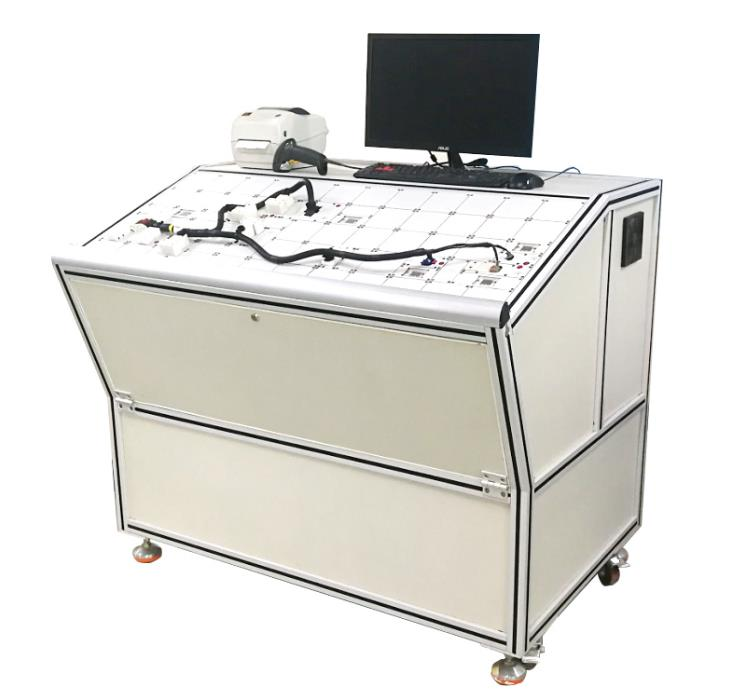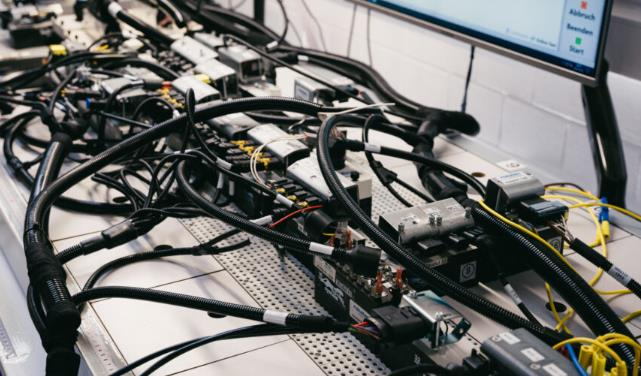The working principle of the automotive wiring harness test bench primarily relies on electrical signal transmission and detection technology. It evaluates the electrical performance and mechanical reliability of wiring harnesses through a systematic testing process. Its core workflow can be divided into the following steps:

1. Connection and Signal Injection
Connect the test harness to the test instrument interface on the test bench. The instrument provides multi-channel measurement modules (such as resistance, voltage, and current detection units). Subsequently, inject a specific electrical signal into the harness. This signal can be provided by the instrument's internal generator or an external excitation source, simulating the electrical environment under actual operating conditions.
2. Electrical Characteristic Testing
Real-time monitoring of wiring harness response to signals via internal circuits and sensors, including:
. Conductivity Testing: Measures resistance values to determine circuit
continuity with accuracy up to 0.1%;
. Insulation Performance Testing: Applies high voltage (up to 5kV) to detect
insulation layer withstand voltage capability;
. Signal Integrity Analysis: Evaluates parameters such as voltage drop and
capacitance for compliance with standards.
3. Mechanical and Environmental Testing
Some high-end test benches also integrate:
. Insertion/Extraction Force Testing: Evaluates the mechanical durability of
connector terminals;
. Environmental Simulation: Validates harness reliability under extreme
conditions using salt spray chambers, vibration testers, etc.
4. Result Evaluation and Output
The system automatically compares measurement data against preset thresholds, displaying pass/fail conclusions directly on the screen. It supports data storage or network transmission. Modern testing benches are typically computer-controlled, with some devices can generate three-dimensional coordinate reports or spectral analysis of material components.

Technology Evolution
Early detection relied on indicator lights and buzzers for basic checks, resulting in high misjudgment rates. Current mainstream equipment now supports scanning capabilities exceeding 256 channels, integrating AI algorithms to enhance detection efficiency. For high-voltage wiring harnesses in new energy vehicles, some testing benches also have 600V withstand voltage testing and LED circuit visualization capabilities.
Tag:
Prev:Compact Guide Cylinder: Strong resistance to misalignment, with long-term operation accuracy not deteriorating
Next: Solenoid Valves: Core Equipment Across Multiple Fields, Empowering Precise Control and Safe Operation








